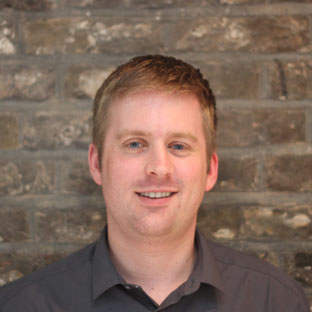Last week saw the launch of the RSA’s People Shaped Localism report. Kindly supported by Wiltshire Council, the Public Services and Communities team at the RSA has – over the last three years – explored the nature of localism, the role of civic engagement and the importance of creativity in ensuring effective, place-based leadership.
The Government’s Localism Act (2011) and more recent Devolution Deals have effected a change in momentum that starts to turn the tide of decades of increasing centralisation of power in national level government. But this ‘big devolution’ to combined authorities at the scale of the city or county region risks dwarfing the ideas and values of localism. Having led the influential RSA City Growth Commission, the RSA is well-placed to ask the interesting questions, such as: where do the premises of structural devolution and localism meet?
How they do relate to each other and what does it mean for engagement with local communities? Do new elected metro mayors offer hope of reconnecting citizens with local politics? Or will the long-lamented democratic deficit persist?
Steve Milton, Head of Community Governance at Wiltshire Council, opened the debate by outlining the benefits of our two-year learning partnership. At the heart of the partnership were creative ideas and perspectives, leading towards a reimagining of the relationship between the council and citizens in the context of budget cuts.
People Shaped Localism calls for a bold reinvention of local democracy and service provision, with a shift towards ‘council by co-production’. This would ensure that the promise of localism and devolution for a new suite of powers for local people and areas is combined with a more reciprocal relationship between citizen and state and a greater focus on community empowerment.
Chaired by the RSA’s Chief Executive Matthew Taylor, the panel then debated People Shaped Localism’s argument for collaborative co-design and co-production of services between local councils and their communities. Representing different sectors ranging from charities and campaigns groups to the media, our panellists included: Katie Ghose, Chief Executive, Electoral Reform Society; David Boyle, Author and Journalist; Jacqui McKinlay; Executive Director, Centre for Public Scrutiny and Colin Kay, Education consultant.
Colin Kay emphasised the importance of community engagement and the contribution volunteers make. However, being a volunteer community leader “can be both lonely and challenging”. Providing the opportunity to share concerns and to seek advice are therefore at the heart of the Common Knowledge project which, as part of People Shaped Localism, has been introduced in Wiltshire. Serving as a dynamic resource, the group defined a clear set of values, exchanged experiences and allowed its participants to understand challenges of community engagement which is considered as quintessential for council based projects and activities, not only in Wiltshire, but across the UK. Most importantly, community engagement is about ownership and genuine, continuous two way conversation fostering trust - and not only about handing out questionnaires. This is also something echoed in our recent report, Connected Communities for mental wellbeing and social inclusion.
The importance of public services as part of community life was emphasised by David Boyle. Local approaches to support people with poor mental health were cited as an example, offering flexible face-to-face support. People centred, reciprocal relationships are important for co-production and ensuring that localism is shaped by people. Moreover, devolution should not merely involve town halls replicating the top-down governance of Whitehall– devolution needs to give people a real stake in influencing and shaping what happens locally. The argument for more personalised, bespoke and co-produced services is “gaining ground, but very slowly” as proponents of providing services on an industrial scale are also pressing ahead.
Building on Colin’s and David’s argument, Jacqui McKinlay added that “decisions are better when they involve others” and “answers are in communities not committee rooms”. The Government, however, has pushed ahead with the devolution deals, lacking a transparent approach and community engagement. Moreover, communities are overwhelmed with opportunities being offered and struggle to navigate new partnerships that developed as part of the devolution deals. Scrutiny committees are at the centre of devolution deals, but do not offer sufficient freedom and flexibility for community engagement. The involvement of communities needs to be considered as additional value and not as a bureaucratic delay or barrier.
Katy mirrored Jacqui’s argument, saying that devolution deals are characterised by democratic deficits. Drawing on two examples, Katy explained how constitutional conventions aimed to work out how co-production can succeed, involving a representative sample of citizens in elected and non-elected roles alike. These conventions examined devolution deals that were on the table and, supported by experts, discussed the offered arrangements and possible alternatives. The experiment proved that given time, space, knowledge and support empowers people to take part in debates about devolution deals and local matters as “confidence and knowledge grew”.
In response to the panels’ comments, the audience asked how we can encourage elected politicians to accept people’s input enabling genuine stakeholder involvement, based on not only listening to people but also taking their views into account. The panel responded by arguing that a change of culture is required as statutory bodies will need partners to deliver their objectives and that relationship needs to be based on trust and mutual respect. Not everyone wants to take decisions, but involvement and being listened to is important for people shaped localism to be turned into reality. This includes a representative sample of the community and not the ‘usual suspects’.
Further questions focused on how people in poverty are being supported by devolution deals and the importance of facilitation models that look at processes and not only outcomes as well as the role that research can play in shaping localism. This interesting set of questions emphasised the importance of “doing democracy in a different way” and to test approaches as well as the need to focus not only on economic growth but also the wellbeing of people. As Jacquie pointed out “it won’t work if it hasn’t made a difference to the people on the ground”.
------
As part of People Shaped Localism, the RSA has written a Creative Gatherings guide, serving as a practical resource which supports shared decision-making within communities and between different groups of people. It outlines what Creative Gatherings are, how they can help you work together better, and what’s needed to apply them in practice. You can download the resource here.
You can watch the event here.
Related articles
-
Is transport enough to build inclusive growth?
David Boyle (blog)
David Boyle explores the limits of transport policy to create inclusive cities
-
Blog: Political connectivity – our ticking time-bomb and the route to innovation and inclusion
Charlotte Alldritt
We need to restore political connectivity and build a genuine link between people and their systems of governance, argues Charlotte Alldritt.
-
Blog: Person-to-person social justice - where new and old power combine
Anthony Painter
The balance of power between people working together and old hierarchies is changing. Anthony Painter shows how and contends that we should start looking at society and politics in new ways.




Be the first to write a comment
Comments
Please login to post a comment or reply
Don't have an account? Click here to register.